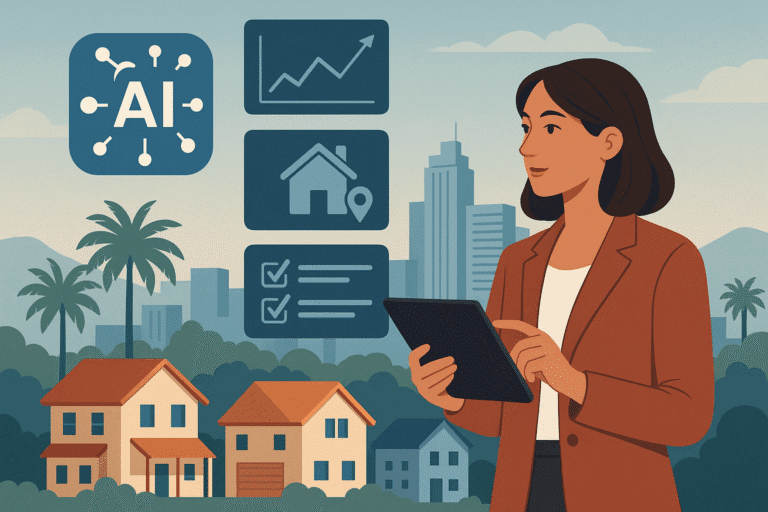Introduction: The Rise of AI in Property Management
In an era where technology is constantly reshaping industries, the property management sector in California has embraced a new wave of innovation. On April 30, 2023, a game-changing AI-powered platform was unveiled at the annual Property Tech Summit in San Francisco. This cutting-edge technology promises to streamline operations for property management firms by optimizing tenant communication, rent collection, and maintenance request management.
Developed by a local tech startup, this new platform employs machine learning algorithms to predict and address potential maintenance issues before they escalate. The result is a reduction in operational costs and a significant boost in tenant satisfaction. As the real estate industry increasingly moves towards automation, this breakthrough offers a glimpse into the future of property management.
AI-Driven Solutions: How the Technology Works
At its core, the platform harnesses the power of artificial intelligence to transform traditional property management practices. Using advanced machine learning models, the system analyzes data from hundreds of thousands of properties to identify patterns and predict when maintenance issues are likely to occur. This proactive approach allows property managers to resolve problems before tenants even notice them, preventing costly emergency repairs and reducing downtime.
The platform also improves tenant communication by offering instant responses to maintenance requests and inquiries. It allows tenants to submit issues via a user-friendly interface and receive real-time updates on the status of their requests. This results in better communication, faster response times, and ultimately, happier tenants.
Rent collection is another area where the technology excels. The AI platform automates payment reminders, tracks late payments, and ensures seamless processing of transactions, all while maintaining a transparent and efficient system for both tenants and property managers.
Real-World Impact: Results from Early Adopters
The platform has already proven its worth in the hands of early adopters. During the Property Tech Summit, the startup’s founders presented case studies from landlords who had implemented the technology in their properties. One example highlighted how a property manager reduced maintenance costs by 30% within the first six months of using the system. These results were driven by the platform’s ability to forecast maintenance needs accurately and prevent unnecessary repairs.
Other case studies demonstrated improvements in tenant retention rates and a decrease in operational overhead. With features that automate routine tasks and offer predictive insights, property managers can focus on higher-value activities, such as customer service and long-term strategic planning.
Challenges and Development: Refining the Platform
While the technology is already showing great promise, the development process has not been without its challenges. The AI platform took nearly three years to perfect, with extensive testing and collaboration between the tech startup and property management firms. The machine learning algorithms were continually refined using real-world data to ensure they accurately reflected the complexities of property maintenance.
This process also involved overcoming hurdles such as data privacy concerns and ensuring the platform’s ease of use for both property managers and tenants. Despite these challenges, the startup’s founders are optimistic about the future of the platform and are committed to further enhancing its capabilities.
Industry-Wide Implications: The Future of Property Management
The adoption of AI-driven solutions in property management represents a fundamental shift in the industry. As traditional property management firms look to stay competitive, many will likely follow suit by integrating similar technologies into their operations. This trend is expected to accelerate as the benefits of AI become more apparent, particularly in terms of cost reduction, operational efficiency, and tenant satisfaction.
As AI continues to evolve, property managers can expect even more sophisticated tools for managing their portfolios. The technology may soon be capable of handling even more complex tasks, such as lease renewals, marketing, and tenant screening, all with a level of efficiency and accuracy that human managers cannot match.
In the coming years, it is likely that property management firms will increasingly rely on AI to remain at the forefront of the real estate industry. With its potential to transform operations and improve profitability, AI-powered platforms are set to become indispensable tools in the property management toolkit.
Conclusion: A New Era for Property Management in California
The introduction of AI-powered technology at the Property Tech Summit is a defining moment for the property management sector in California. With its ability to predict maintenance issues, streamline tenant communication, and automate rent collection, the platform is a game-changer for the industry. As more property management firms adopt similar technology, the landscape of real estate operations will undoubtedly continue to evolve, ushering in a new era of efficiency and innovation. The future of property management has arrived, and it is powered by artificial intelligence.
